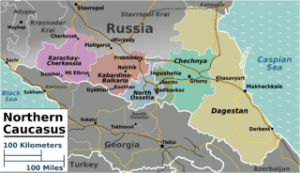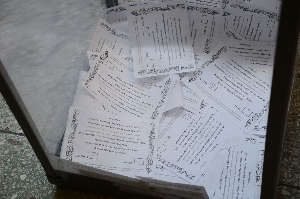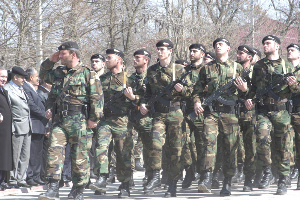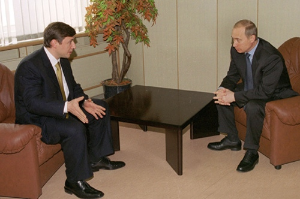Repercussions of Moscow's Expansionist Foreign Policy in North Caucasus
By Valeriy Dzutsev (09/17/2014 issue of the CACI Analyst)
Russia’s rapidly changing economic and political landscape is affecting relations between the peripheral North Caucasus region and the central government. As Moscow’s resources dwindle or are projected to diminish significantly, its ability to support an elaborate system of dependencies and allegiances in its semi-colonial periphery plummets. The central government seeks to reap more revenues from the regions and to decrease the appetites of local elites in order to finance its expansionist policies abroad. As a result, political uncertainty is growing and the previously muted criticism of Moscow’s policies from the North Caucasus’ ruling elites is coming to the forefront.

Repercussions of Ukrainian Separatist Referendums for the North Caucasus
By Huseyn Aliyev (06/18/2014 issue of the CACI Analyst)
Russia’s annexation of Crimea in March 2014 and the ensuing series of separatist referendums in Eastern Ukraine has led to numerous debates in the former Soviet Union, and beyond, about the repercussions of the Ukrainian events for the rest of the region. Although the primary focus has so far been on the de-facto independent separatist regions, such as Moldova’s Transnistria, Azerbaijan’s Nagorno-Karabakh and Georgia’s South Ossetia and Abkhazia, analysts have also started drawing parallels between the ongoing developments in Ukraine and the deeply-rooted separatist aspirations in Russia’s North Caucasus region.

Chechen Units Deployed in Eastern Ukraine
By Emil Souleimanov (06/04/2014 issue of the CACI Analyst)
News has recently spread of the involvement of Chechens in the Ukraine crisis. According to numerous eyewitnesses, members of Chechen elite units, commonly known as kadyrovtsy, were spotted in the eastern Ukrainian city of Donetsk where they were reportedly deployed in combat against local Ukrainian troops. Soon, sources in Chechnya started informing of dozens of corpses of Chechens being transported from Ukraine back to this North Caucasian republic. The participation of the kadyrovtsy units in military operations outside the North Caucasus indicates a novel trend that could have broad security implications transcending the region’s borders.

Putin Appoints Russian Military General to Rule the North Caucasus
By Valeriy Dzutsev (05/21/2014 issue of the CACI Analyst)
Russia’s President Vladimir Putin is reshaping the administration of the North Caucasus and reshuffling his envoys to the region. The changes reflect Moscow’s frustration with the developments in this unstable territory, the declining financial resources of the central government, and a rebound of imperialist ideology in the Russian Federation. Previous attempts by the Russian government to use economic development as a policy tool to stop the violence and to assert greater control over the North Caucasus largely failed. Moscow’s fears of North Caucasian separatism still play a prominent role in the government’s policies in the region. Having crushed the large-scale insurgency, Russia still faces simmering conflict and has a profound lack of vision for the future of the region.







